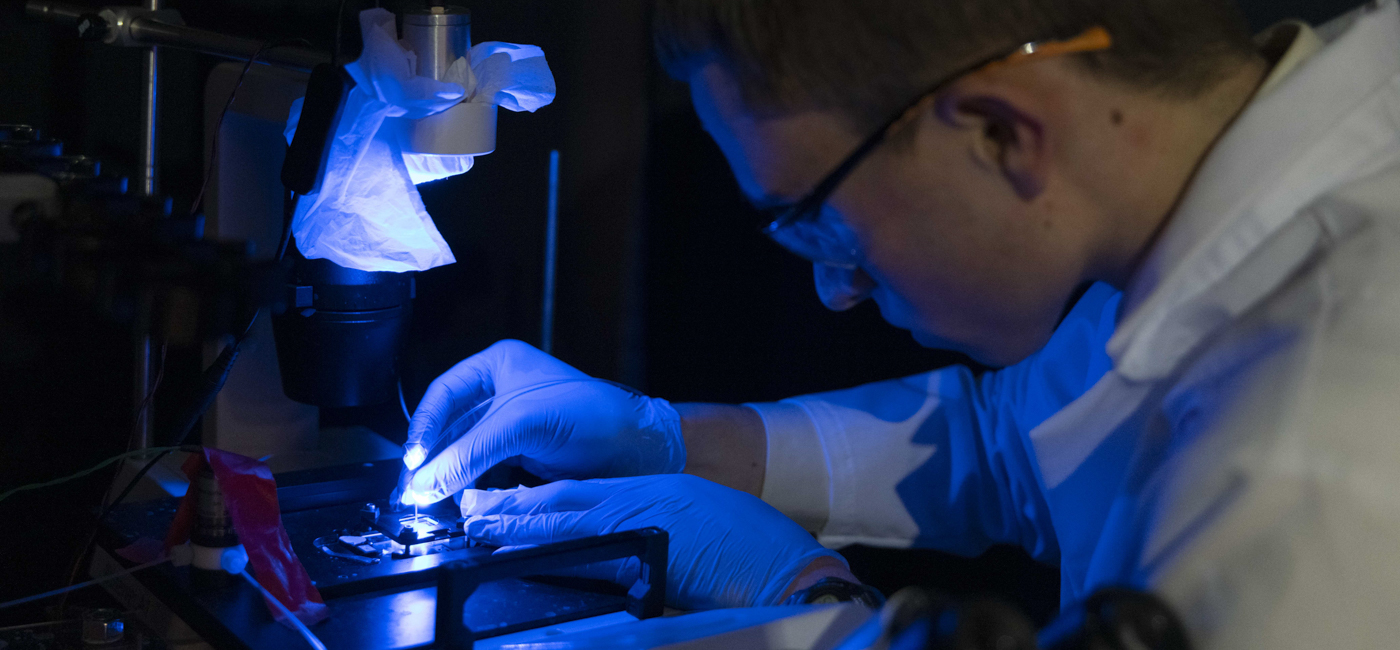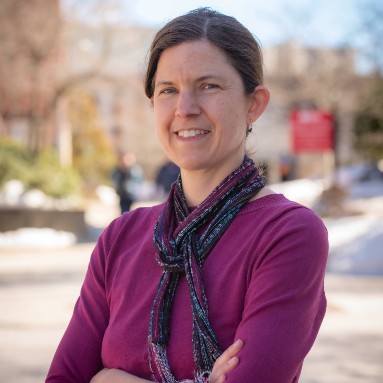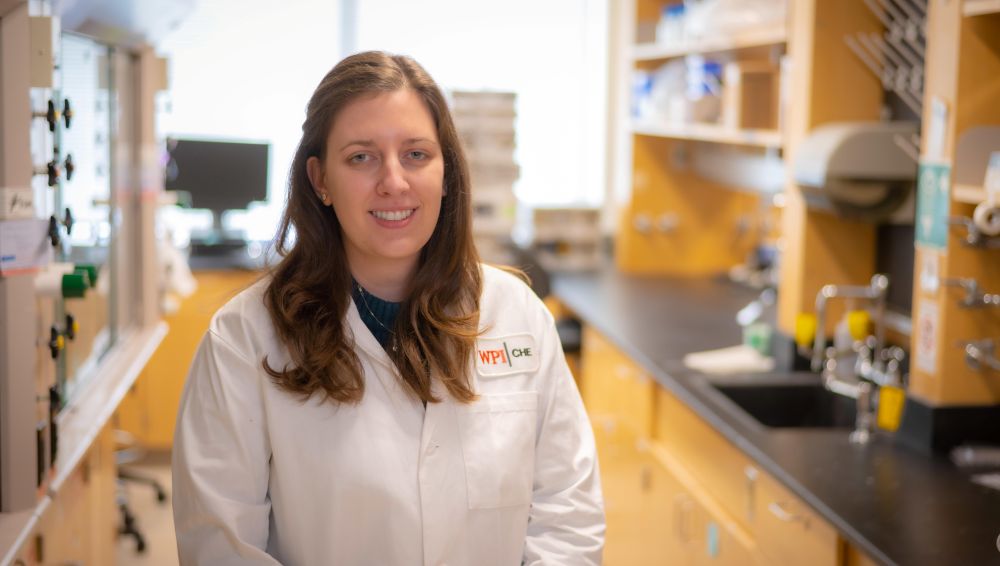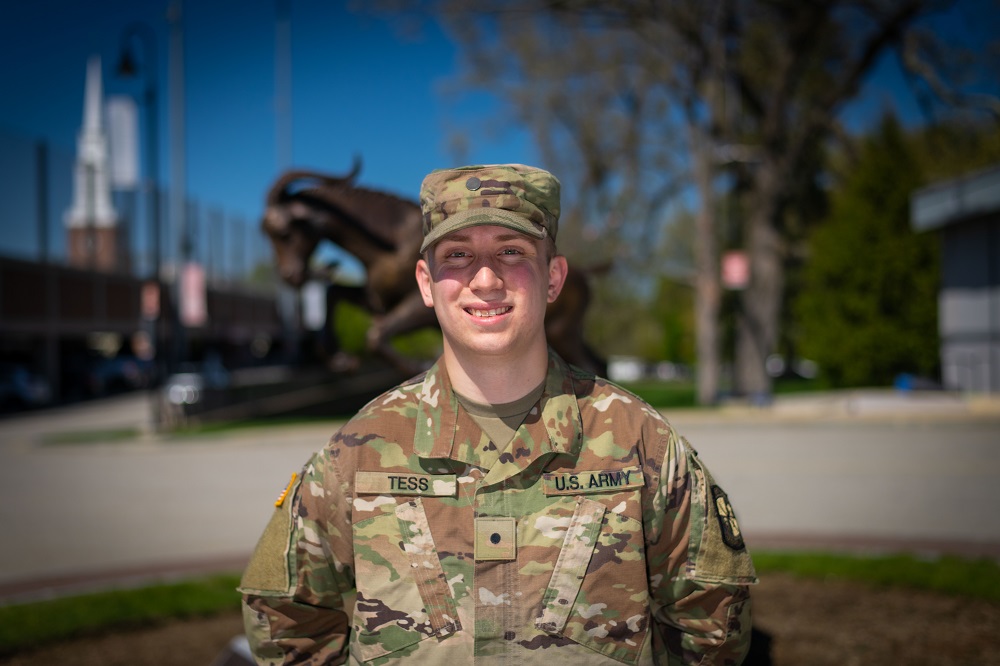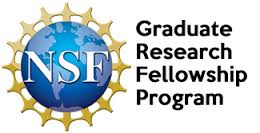 Three WPI graduate students were named recipients of Graduate Research Fellowship Program (GRFP) awards last month. Megan Mancuso, Blanche Ngo Mahop, and Jessica Faust received notice that they were among 2,000 students chosen out of 17,000 nationwide for the National Science Foundation honor. It provides a three-year annual stipend of $34,000 to the science or engineering student, plus a cost-of-education allowance to the students’ graduate institution.
Three WPI graduate students were named recipients of Graduate Research Fellowship Program (GRFP) awards last month. Megan Mancuso, Blanche Ngo Mahop, and Jessica Faust received notice that they were among 2,000 students chosen out of 17,000 nationwide for the National Science Foundation honor. It provides a three-year annual stipend of $34,000 to the science or engineering student, plus a cost-of-education allowance to the students’ graduate institution.
Fellows also get global research collaboration opportunities and professional career development via federal internships, according to the NSF. The awards, according to Joan Ferrini-Mundy of the National Science Foundation, are given to those with significant research potential “and they are investments that will help propel this country’s future innovations and economic growth.”

Terri Camesano
WPI’s Dean of Graduate Studies, Terri Camesano, congratulates these students on their achievement. “I have been a reviewer for the NSF GRFP and the field is exceptionally competitive,” she says. “Students have to show a combination of accomplishments and potential for research, as well as demonstration of the societal benefits that they expect to result. The broader impacts of both the research areas and the outreach, mentoring, or service that the students plan to undertake are all very important.”
Megan Mancuso of Framingham, Mass., completed her bachelor’s degree in bioengineering at Union College in Schenectady, N.Y. Though she knew about the GRFP as an undergraduate, she purposely waited to apply until she was pursuing a graduate degree in biomedical engineering at WPI. “I tried not to worry and not depend on it,” she says about mailing the application last fall. “But I started to get excited and anxious as the time got closer.”
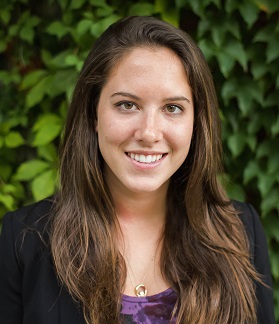
Megan Mancuso
Though she learned via email that she won, it wasn’t long before texts from friends started to pour in, as well, Mancuso says. She is currently pursuing a PhD at WPI in the Department of Biomedical Engineering with associate professor Karen Troy in the Musculoskeletal Biomechanics Laboratory to study how mechanical loading affects bone strength in young, healthy women with the long-term goal of preventing osteoporosis. Megan had prior experience with WPI as she has participated in another NSF-funded program while she was an undergraduate, the summer Research Experience for Undergraduates (REU) in the Department of Biomedical Engineering. She gained exposure to research that ultimately helped her NSF GRFP application be more successful.
Jessica Faust ’16 of Pepperell, Mass., will pursue a graduate degree at Northeastern University in Boston. The lab there, she says, is familiar territory—she worked as a research assistant at Northeastern as part of an internship program.
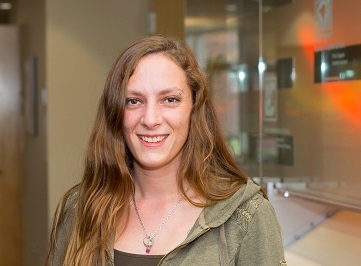
Jessica Faust
Advisors at both Northeastern and WPI had encouraged her to apply for the GRFP last fall. “I thought I might have a shot if I applied as an undergrad, not as a graduate student,” she says. Faust was thrilled with her win. “I’ll probably continue studying polymer composites,” with the award funding, she says, a topic of interest for some time.
Blanche Sonia Ngo Mahop, a native of Cameroon who lives in Maryland, has a bachelor’s degree in applied mathematics from Howard University in Washington, D.C., where her father is a professor. She expects to complete her PhD in computational and applied mathematics in 2019. Her subject of interest is financial math and data, she says.
“Every day I was thinking, ‘whatever will happen will happen,’ as she waited for word on the NSF picks for the award. “I will be fine,” Mahop says she told herself during the waiting period. When she saw the NSF email in her inbox, and her name on the list, she began shaking, she admits. “I just fell down on my knees and started praying. This is such a blessing and something I will never forget.” Mahop called her father immediately, and spoke with her mother and sister later that day.

Sonia Ngo Mahop
Mancuso, Faust, and Mahop are in good company. “Former NSF fellows include numerous individuals who have made transformative breakthroughs in science and engineering, have become leaders in their chosen careers and been honored as Nobel Laureates,” said Ferrini-Mundy.
All three winners suggest to other students that they apply early for the GRFP—not only to reduce the stress of the process, but to allow for as much application review as possible by as many people as possible. “Everyone has a different way to see it,” says Mahop.
Recognizing that many of WPI’s graduate students have the potential to succeed at receiving an NSF GRFP, WPI’s Office of Graduate Studies offers an annual one-day workshop, plus follow-up sessions on writing a successful GRFP application. These sessions are incorporated into WPI’s Graduate STARS program (Student Training and Readiness Sessions).
According to Camesano, “Our students are very accomplished and have great ideas about their future research and career plans. But everyone can benefit from training on how to effectively present their portfolio and advocate for themselves. We provide these sessions and individual mentoring to help make sure that our students prepare a competitive application.”
– BY SUSAN SHALHOUB

